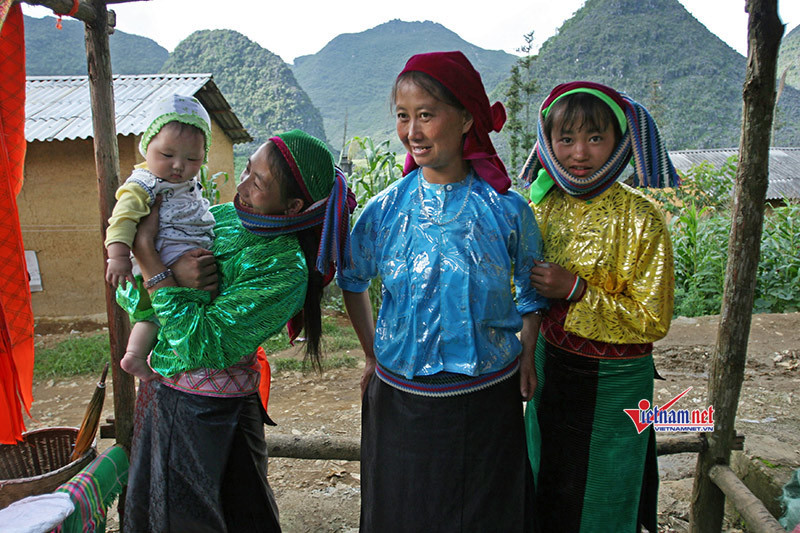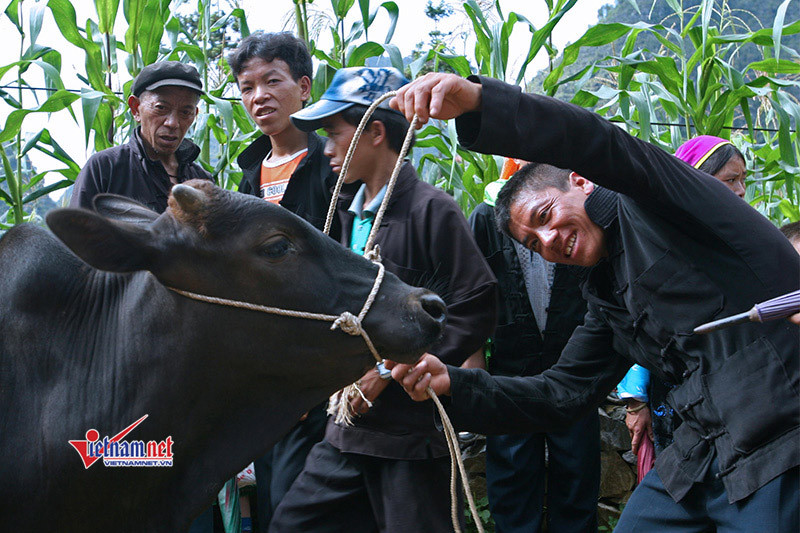in order to establish a unified legal framework to contribute to the coordination of investment and development activities in ethnic minority and mountainous areas in a concentrated way.
So far, Vietnam has built up a fairly solid legal basis for the construction and implementation of the Constitution, laws and policies on ensuring the rights of ethnic minorities, which basically can meet the requirements of international integration with the impact of globalization and the market mechanism.
Solid legal basis
From the perspective of human rights, including the rights of ethnic minorities, the system of policies and laws has made significant progresses in the process of integrating significantly into the common development of progressive values of the mankind.
Accordingly, in addition to the regulations that guarantee human rights in general, Vietnam also has specific laws and policies, specific policies such as policies on land, education, healthcare, loans to create jobs, preserve and develop socio-economic of ethnic minorities... in order to ensure rights and promote the exercise of rights for ethnic minorities in order to strive for the common goal of exercising equal rights between ethnic groups.
 |
The contents of laws and policies on ensuring the rights of ethnic minorities focusing should be generalized on the following aspects:
Firstly, political assurance: Eliminating unequal regulations between ethnic groups; eradicating prejudice among ethnic groups; ethnic groups are free to express their aspirations and desires; focusing on training and retraining of ethnic minority officials; having members of ethnic minority groups in the Government and National Assembly; supporting ethnic minorities to gradually manage their own affairs, to quickly develop their economy and culture for the equal realization of ethnic groups.
Secondly, economic security: It is the State's responsibility to create better economic conditions to promote the guarantee of economic rights as the driving force and opportunity to secure rights and other fundamental freedoms.
For example, supporting the development of household-based and village-based economy through promoting the change of plant varieties and livestock, developing sustainable forestry, planting and processing industrial crops, and promoting construction of socio-economic infrastructure (electricity, roads, schools, health stations...), especially in remote, border and island areas.
Thirdly, cultural assurance: The rights of ethnic minorities cannot be separated from the cultural identity and traditions of each ethnic minority. Therefore, it is the State's responsibility to preserve and promote the identity and cultural traditions of each ethnic group and at the same time promote cultural exchange and integration among ethnic minorities.
Attaching importance to improving educational level, developing vocational training schools for ethnic young people; abolishing superstitious practices, revitalizing customs, customs and festivals in a healthy direction; stepping up epidemic prevention and sanitation to preserve the health of the people.
Fourthly, legal guarantee: The legal basis to ensure the rights of ethnic minorities related to a wide range of fields, from politics, economics to the Constitution, law and implementation of democracy, especially law enforcement.
It is necessary to pass the promulgation and implementation of the "Law on Support for and Development of Ethnic Minorities and Mountainous Areas" to both fill the gap in state management and overcome the spread in the implementation of regulations of different specialized "laws" in order to establish a unified legal framework, contributing to centralized coordination of investment and development activities in ethnic minority and mountainous areas.
Fifthly, institutional assurance: The current requirement is to build institutions to ensure the rights of ethnic minorities to operate effectively, efficiently, openly and transparently with a monitoring mechanism in line with principles of the socialist state of law in general and the criteria of the human rights-based approach to ensure the rights of ethnic minorities.
These are: (i) Based on and direction towards the rights of ethnic minorities; (ii) Clearly defining subjects of the rights and the subjects who are responsible for ensuring the rights in each program, project ... (iii) The active participation of the people in each program or project; (iv) Transparent monitoring and enforcement mechanism for ethical and legal responsibilities for each program, project, ...
 |
|
|
Law on Support for and Development of Ethnic Minorities and Mountainous Areas is required
In early 2017, the National Assembly Committee for Ethnic Minorities submitted to the Government for consideration and proposal to compile the Law on Support for and Development of Ethnic Minorities and Mountainous Areas.
According to the outline, the Law will stipulate: Policy for poverty reduction, support for infrastructure development, production, commerce, application of science, technology; Policy to support conservation and development of culture, healthcare, population, gender equality, and reduction of child marriage and in-blood marriage; Policy to support development of education, training, vocational training, and job creation; Policy to support the development of human resources, to support officials of ethnic minorities at all levels; Policy to support information and communications, propaganda, law dissemination, education, legal aid...
Experts have pointed out the reasons why this is necessary:
Firstly, in order to fully and properly institutionalize the Party's policy in the field of ethnic groups which is pointed out in the Platform on national construction in the period of transition to socialism (revised and amended in 2011) and other Party documents according to the motto of implementing the policy of equality, solidarity, respect and assistance among ethnic groups, creating all conditions for them to develop together, sticking closely to the development of the Vietnamese ethnic community. Preserving and promoting the cultural, linguistic and fine traditions of all ethnic groups. Fighting against the idea of ethnic discrimination and division. Socio-economic policies must be suitable to particular characteristics of regions and ethnic groups, especially ethnic minorities.
Secondly, to concretize the provisions of the 2013 Constitution on national policies, human rights, and citizenship. Accordingly, all ethnic groups are equal, united, respect and help each other to develop together; all acts of ethnic discrimination and division are strictly forbidden. The State implements the policy of comprehensive development and creates conditions for the ethnic minorities to bring into play their internal strengths and develop together with the country.
Thirdly, to basically overcome the current shortcomings in support policy and institutions in ethnic minority and mountainous areas. Since the Doi Moi (renovation) policy took effect in 198), the State has issued many legal documents, including many provisions related to the development of ethnic minority and mountainous areas. However, there is no legal document at the law level that specifically stipulates support for the development of ethnic minority and mountainous areas. The support policies that have been promulgated are still scattered, and related regulations are scattered in many documents at different levels.
Fourthly, the enactment of laws aims to internalize law, ensure the implementation of international treaties related to national issues to which Vietnam is a party and committed to implement, such as the Convention on civil and political rights; Convention on economic, social and cultural rights, Convention on the elimination of all forms of racism, Convention on the elimination of all forms of discrimination against women...etc.
In terms of legislation, the Law on Support for the Development of Ethnic Minority and Mountainous Areas will be a framework law, specifying issues of support principles, supporting policies and the implementation of these policies. The laws that are promulgated later need to ensure the consistency and compliance with the principles and regulations noted in this Law.
Ngoc Chau